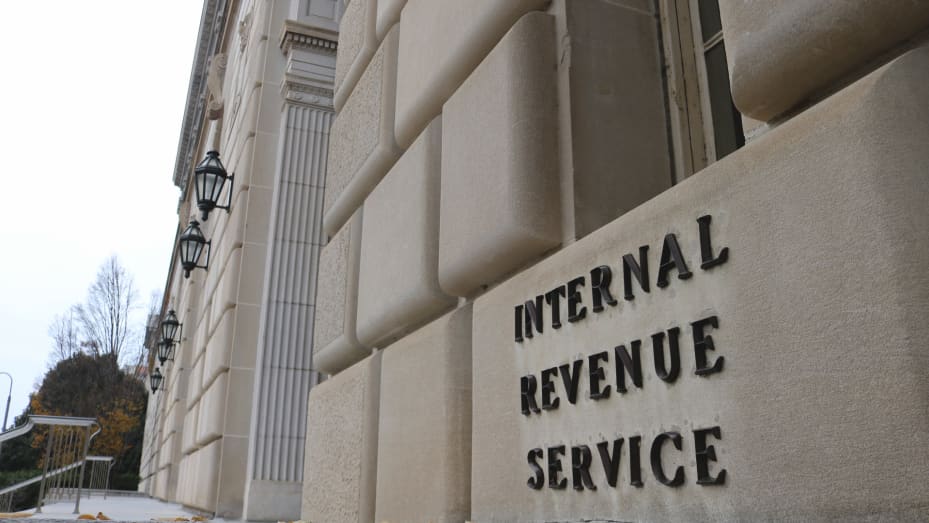
The IRS intends to use an expedited hiring process to hire about 10,000 workers for processing tax returns and managing taxpayers’ accounts, according to a union that represents employees in the Service and other federal agencies.
National Treasury Employees Union (NTEU) National President Tony Reardon said in a statement that the NTEU was notified that the IRS has been granted direct-hire authority for roughly 10,000 entry-level positions in its submission-processing and accounts-management functions.
The expedited process apparently is intended to “address concerns that the agency’s hiring process is difficult and slow,” Reardon said in the statement. “It is clear that understaffing in these areas contributes to the backlog in the processing of tax returns and taxpayer correspondence.”
If successful, the plan appears capable of helping the IRS with its daunting tasks of clearing an unprecedented backlog of prior-year returns and related correspondence as it manages the current filing season, which imposes major challenges of its own, including such novel issues for the 2021 tax year as reconciling advance child tax credit payments received by taxpayers with the full-year credit they qualify for.
As of last month, the backlog included 17.6 million tax returns and nearly 6 million items of taxpayer correspondence, according to National Taxpayer Advocate Erin Collins’s testimony to the Senate Finance Committee on Feb. 17. It is likely to persist well into 2022 — depending largely on how many paper returns taxpayers file going forward, Collins said last week in an online AICPA Town Hall. The IRS has announced a “surge team” of employees reassigned to its accounts-management function to attack the backlog.
Also last month, the IRS reversed its plans to close its Austin, Texas, processing center by 2024 as part of a plan to consolidate its handling of paper returns. That reversal came shortly after a letter by members of Congress questioned the strategy and an audit by the Treasury Inspector General for Tax Administration also raised concerns, in light of the Service’s continuing overloaded and aging inventory of unprocessed paper returns.
If hired in a short time, 10,000 employees would greatly outnumber the surge team of about 1,200 reassigned workers. As of 2020, the number of full-time-equivalent positions in the IRS was about 75,700, according to the latest IRS Data Book figures, for the fiscal year 2020. Nearly 25,000 of those were in filing and account services.
Hiring under the authority could be spread out over as much as the next 20 months, during which the IRS expects many retirements and other new openings, so it is not clear how much, if at all, the IRS workforce would grow. The direct-hire authority would last through Dec. 31, 2023, Reardon’s statement said. The statement also said that the union supports the strategy “on a limited basis such as this to address the critical need to fill entry-level positions to help reduce the backlog.”
In her Senate Finance Committee testimony, Collins said that the IRS had recently announced it had 5,000 open positions, of which 179 had been filled by mid-February. Unwieldy hiring requirements were part of the problem, Collins said in her 2021 Annual Report to Congress, in which she ranked recruitment, hiring, and training at the IRS as the second of 10 most serious problems facing taxpayers. She has long advocated direct-hire authority for the Service. It currently takes the IRS about three months to hire a new person, from advertising a position, taking applications, and running security checks, she told the Senate Finance Committee in the Feb. 17 hearing.
Also, she said in testimony before the House Ways and Means Committee’s Oversight Committee on Feb. 8, low pay is also part of the problem, with submission-processing staff generally offered a starting annual salary of less than $25,000.
“In this economy, it is not surprising that the IRS is having difficulty finding enough suitable job applicants,” she told the representatives.
The IRS had requested direct-hire authority in response to Collins’s recommendations earlier, but the federal Office of Personnel Management (OPM) had been studying the request without acting on it as of August 2021, Collins said in her annual report.
An IRS spokesman declined to comment Monday on whether the Service has now been granted the direct-hire authority, which expedites normal procedures to help federal agencies to meet recruitment needs when experiencing a severe shortage of job candidates or to meet other critical hiring needs, according to the OPM.
Specifically, direct-hire authority allows agencies, after giving public notice, to hire any qualified applicant without having to meet certain competitive ranking and rating requirements or give preference to certain armed forces veterans and their unmarried widows or widowers. It also allows agencies to forgo the “rule of three,” under which they must hire from among the top three available candidates rated and referred to them by an examining office.
The NTEU represents employees not just in the IRS and other Treasury offices and bureaus but in 34 federal departments and agencies covering a wide range of governmental functions.


